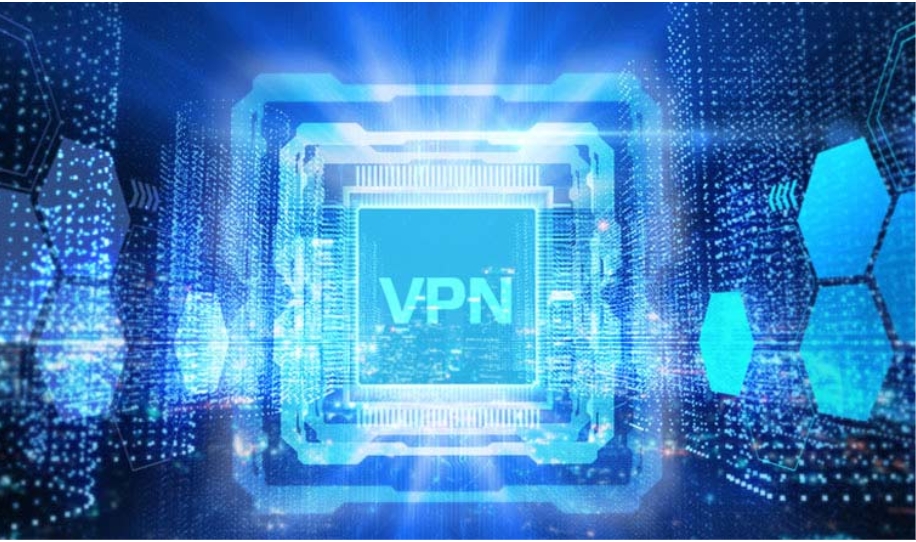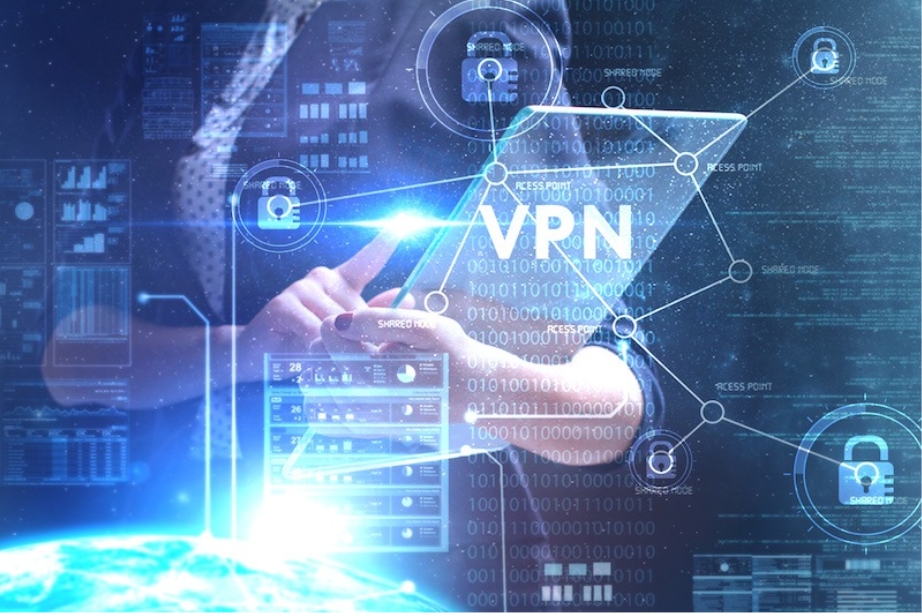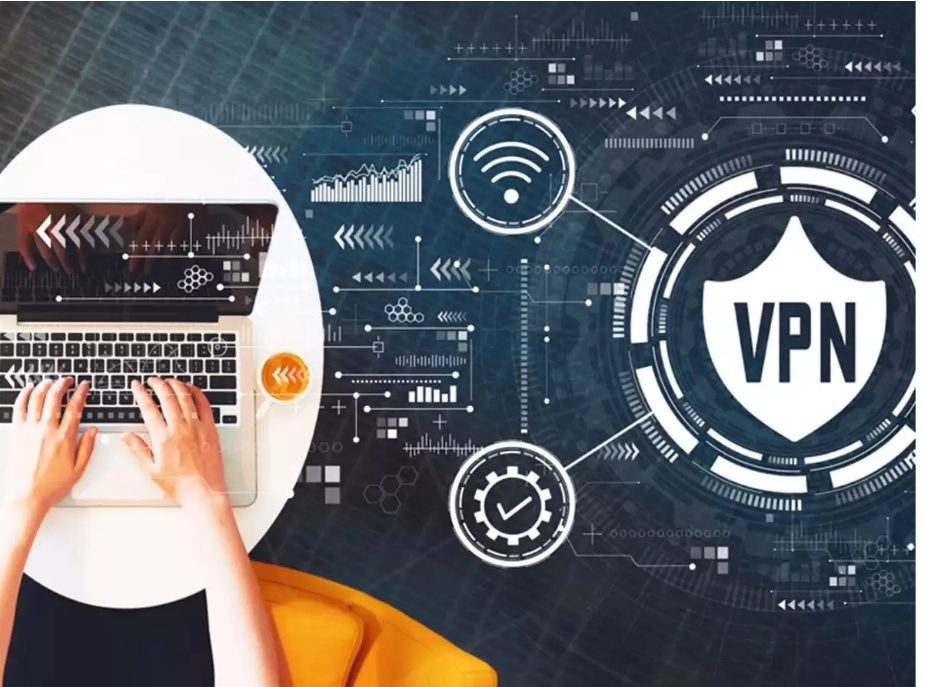I. Introduction
In today’s interconnected digital landscape, where the flow of information is constant and pervasive, cybersecurity stands as a critical pillar safeguarding our online activities. As more aspects of our lives migrate to digital platforms, ensuring the security and privacy of our data becomes paramount. This is where Virtual Private Networks (VPNs) emerge as essential tools in fortifying our online defenses. Explore more about VPNs and their benefits at finddiffer.com.

A. Importance Of Cybersecurity In The Digital Age
The digital age has revolutionized how we live, work, and interact. With advancements in technology enabling seamless connectivity across the globe, the volume and sensitivity of data transmitted over networks have grown exponentially. This surge in digital interaction, while enhancing convenience and productivity, also amplifies the risks of cyber threats such as data breaches, identity theft, and unauthorized surveillance. As individuals and businesses alike navigate this landscape, the need for robust cybersecurity measures becomes not just a preference but a necessity.
B. Introduction To VPN Technologies And Their Role In Online Protection
At the forefront of cybersecurity tools, VPN offers a shield against these evolving threats. A Virtual Private Network (VPN) establishes a secure, encrypted connection over a less secure network, typically the internet. By routing your internet traffic through a remote server and encrypting it, VPNs obscure your IP address and encrypt data transmissions, effectively masking your online activities from prying eyes.
II. Understanding Private Network
A. Definition And Basic Principles Of Virtual Private Networks (VPNs)
A Virtual Private Network (VPN) creates a secure connection between a user and the internet, encapsulating data transfers in a layer of encryption. This encrypted tunnel shields data from interception, ensuring confidentiality and integrity during transmission.
B. How VPNs Work To Secure Online Communications And Data
VPN operation involves rerouting internet traffic through a VPN server, where data undergoes encryption before reaching its destination. This encryption prevents unauthorized access or tampering, safeguarding sensitive information such as financial transactions, personal communications, and browsing history.

III. Types Of VPN Technologies
VPNs are tailored to diverse needs, with variations including Remote Access VPNs, which enable secure remote connections to corporate networks, and Site-to-Site VPNs, facilitating secure communication between geographically distant offices. Each type caters to specific operational requirements, enhancing flexibility and scalability in implementing secure networking solutions.
A. Current Adoption Rates and Trends in VPN Usage Globally
Driven by escalating cybersecurity concerns and regulatory changes worldwide, VPN adoption rates are on the rise. Businesses prioritize VPN deployment to fortify remote workforce connections and protect proprietary data. Similarly, individuals seek VPNs to preserve privacy and circumvent regional content restrictions. This trend underscores VPNs’ pivotal role in the digital age, shaping a more secure and resilient cyberspace.
B. Role Of VPNs In Enhancing Online Protection
Central to their functionality, VPNs employ robust encryption protocols to safeguard data transmitted over the internet. Through encryption, VPNs encode data into unreadable formats, ensuring that even if intercepted, sensitive information remains unintelligible to unauthorized parties. This encryption process secures online transactions, protects personal communications, and shields browsing activities from potential threats.
IP Masking and Anonymity: Protecting User Identities and Location Data
By rerouting internet traffic through remote servers located in different geographical locations, VPNs obscure users’ IP addresses. This masking mechanism not only enhances privacy by preventing websites and online services from tracking users’ real locations but also shields against targeted advertising and profiling based on IP data. This anonymity feature is particularly valued by individuals seeking to preserve their digital footprint and mitigate risks associated with identity theft or surveillance.
Bypassing Geo-Restrictions and Censorship: Promoting Internet Freedom
VPN empowers users to circumvent geo-restrictions imposed by content providers and governments. By connecting to servers located in countries with unrestricted access to desired content, VPN users can access streaming services, websites, and social media platforms regardless of their physical location. This capability promotes internet freedom by enabling unrestricted access to information and cultural content, thereby transcending digital borders and fostering global connectivity.
IV. Technological Advancements In VPNs
A. Evolution Of VPN Over The Years
From their inception as tools primarily used by businesses to secure remote access, VPN have undergone significant evolution. Initially developed to establish secure connections over public networks, modern VPN solutions now incorporate advanced encryption standards and enhanced performance capabilities. This evolution reflects ongoing efforts to adapt to emerging cybersecurity threats and accommodate diverse user needs in an increasingly interconnected world.
B. Introduction Of Advanced Features (Kill Switch, Split Tunneling, Multi-Hop VPNs, Etc.)
Recent advancements in VPN technology have introduced a range of sophisticated features designed to augment security and functionality. Features such as a kill switch automatically disconnect internet access if VPN connections falter, preventing data leaks and ensuring continuous protection. Split tunneling allows users to selectively route internet traffic through the VPN, optimizing bandwidth usage while maintaining secure access to local resources. Additionally, multi-hop VPN configurations further enhance anonymity by routing data through multiple servers, complicating efforts to trace online activities back to individual users.
These technological innovations not only bolster the efficacy of VPNs in safeguarding digital communications but also underscore their evolving role in addressing complex cybersecurity challenges. As VPN providers continue to innovate, integrating advanced features and optimizing performance, the landscape of online protection evolves, offering users enhanced security measures and greater control over their digital privacy.
V. The Future Outlook: Innovations And Trends
A. Emerging Technologies Influencing The Future Of VPNs
As the digital landscape continues to evolve, emerging technologies like Artificial Intelligence (AI) and blockchain are poised to revolutionize the capabilities of VPNs. AI-driven algorithms can enhance VPN performance by optimizing server selection, improving data encryption, and detecting anomalies indicative of potential security breaches. Blockchain technology, renowned for its decentralized and immutable nature, holds promise in fortifying VPN infrastructure against tampering and ensuring transparent user data management. These advancements signal a future where VPNs not only bolster cybersecurity but also integrate seamlessly with cutting-edge technologies to offer enhanced privacy and reliability.
B. Impact Of 5G Networks On VPN Performance And Accessibility
The advent of 5G networks heralds a new era in connectivity, promising unprecedented speed and bandwidth capabilities. For VPNs, 5G networks translate into enhanced performance and accessibility, enabling seamless connectivity across diverse devices and locations. The higher speeds and lower latency of 5G networks empower VPN users to maintain secure connections without compromising on browsing speed or data integrity, further cementing VPNs as indispensable tools in an increasingly mobile and interconnected world.

VI. Conclusion
Virtual Private Networks (VPNs) stand as linchpins in the realm of cybersecurity, offering unparalleled protection and privacy in an increasingly interconnected digital landscape. From encrypting data and masking identities to bypassing geo-restrictions and leveraging advanced technologies, VPNs empower users with the tools needed to safeguard their online activities. The evolving threats and opportunities presented by the digital age, the importance of VPN technologies in enhancing online protection cannot be overstated.
Frequently Asked Questions (FAQ)
1. What is a VPN, and how does it enhance online security?
A VPN (Virtual Private Network) encrypts your internet connection, ensuring your online activities are secure from prying eyes, hackers, and surveillance.
2. How do VPNs protect my data and privacy?
VPNs encrypt your data transmissions, making it unreadable to anyone intercepting it, thereby safeguarding sensitive information like passwords, financial transactions, and personal communications.
3. Can a VPN help me bypass geo-restrictions and access restricted content?
Yes, VPNs allow you to connect to servers in different locations, enabling access to geo-blocked content such as streaming services, websites, and social media platforms unavailable in your region.
4. What are the emerging technologies influencing the future of VPNs?
Technologies like Artificial Intelligence (AI) and blockchain are enhancing VPN capabilities, improving performance, security, and user anonymity.
5. How does the introduction of 5G networks impact VPN performance?
5G networks offer faster speeds and lower latency, enhancing VPN performance by enabling seamless and secure connections across devices and locations.




